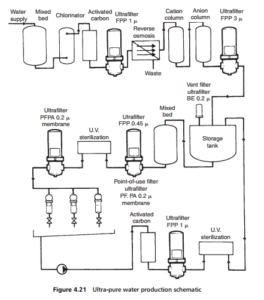0
-
An empty cart
You have no item in your shopping cart
envato-wordpress-toolkit domain was triggered too early. This is usually an indicator for some code in the plugin or theme running too early. Translations should be loaded at the init action or later. Please see Debugging in WordPress for more information. (This message was added in version 6.7.0.) in /var/www/wp-includes/functions.php on line 6121g5plus-darna domain was triggered too early. This is usually an indicator for some code in the plugin or theme running too early. Translations should be loaded at the init action or later. Please see Debugging in WordPress for more information. (This message was added in version 6.7.0.) in /var/www/wp-includes/functions.php on line 6121The treatment of wastewater is as large a process, at least in liquid volume terms, as the provision of fresh water. The water abstracted for domestic, commercial, institutional and most industrial uses is largely returned to the environment as a waste,

in need of treatment before it can be safely discarded. Wastewater treatment is a vital process in the context of sustainable existence, and is a huge application for filtration and related equipment.
In the majority of developed areas, municipal sewage treatment means the purification of wastewaters coming from domestic, institutional, commercial and industrial activities, combined with street and other hard surface run-off, all carried by a sewerage system and delivered to a treatment works owned by the municipality or by a private operator. Its objective is to convert this mixed waste into a treated liquid effluent that may be safely returned to the natural environment. Untreated
sewage, on discharge to a watercourse for example, would consume oxygen, thus killing plant and animal life, and it would also cause a nuisance, as well as being a hazard to human health.
Industrial wastewater treatment has many features in common with the municipal process, but usually has an extra step to take care of the particular features of the industry from which the waste has come.
Look for more information, please click here.